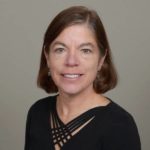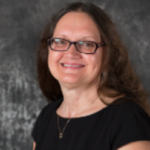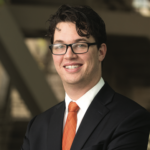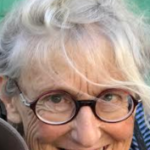Session Description
The past two years have been particularly challenging for students and instructors. With attrition continuing to be an issue of non-traditional institutions, administrators and instructors continue to search for ways to keep students motivated toward completing their degree. While institutions continue to be flexible with students with regard to items such as guaranteed tuition, flexible scheduling, and other incentives, perhaps it is the student/instructor relationship that can affect persistence the most. The Bean and Metzner (1985) Non-traditional Undergraduate Attrition Model “postulates that non-traditional students experience an environmental pressure that includes more interaction with external environmental factors and less interaction with the members of the environments of the academic institutions” (Aljohani, 2016). Some of these environmental factors can be finances, hours of employment, and family responsibilities. Research shows that establishing a personal connection with students creates empathy and caring that can lessen external environmental factors (Sitzman and Debra, 2006). This interactive presentation will offer ways instructors can use current and emerging technologies to host “live sessions” with their students that will help to reinforce student motivation and lessen the impact of external environmental factors in order to encourage student persistence and ultimately success in the course.
Presenter(s)
 Lori Brooks
Lori Brooks
University of Phoenix
I have worked with adult learners for the past 20 years and although technology has changed quite a bit over that time, the goals of students have not. Students want an education that will give them confidence to pursue their dreams. Therefore, I am particularly interested in technology and pedagogy. I am currently a full time faculty member at the University of Phoenix facilitating undergraduate introductory courses. I also facilitate graduate courses in Education with a Technology focus. I hold a PhD in e-Learning Leadership and a Master of Science in Management.
 Judith Drilling
Judith Drilling
University of Phoenix
I have worked in Education for the past 16 years and my passion is assisting students to succeed in meeting their educational goals. As an instructor, I strive to create a learning environment which encourages students to grow academically, professionally, and personally. I obtained a Bachelor's Degree in Psychology from California State University, Fresno in 1999. I began my professional career in teaching as an Independent Living Skills Instructor. In this position I provided education and training to at risk youth in the areas of home management, educational planning, health matters, employment, as well as interpersonal skills. I then went on to earn a Master's Degree in Organizational Leadership in 2002 as well as a Certificate in Human Resources Management in 2004. I have been teaching online for University of Phoenix since 2008, teaching mostly Critical Thinking and Psychology of Learning classes. I also taught an Introduction to Psychology class at a local career college.

 Michelle Reinhardt
Michelle Reinhardt Dora Finamore
Dora Finamore E. Valerie Hewitt
E. Valerie Hewitt Loretta A. Millam
Loretta A. Millam Linda Watson
Linda Watson Mark Mabrito
Mark Mabrito Elias Saade
Elias Saade Sohee Linda Lee
Sohee Linda Lee Jacob Fry
Jacob Fry Jennifer Miyake-Trapp
Jennifer Miyake-Trapp Katherine Watson
Katherine Watson